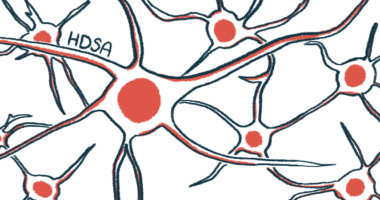Fair and Unbiased Courts Help Protect Disability Rights

My wife, Jill, works from home doing freelance jobs. Because she works remotely, she can watch television during the day from the comfort of our living room.
The recent confirmation hearings in the U.S. Senate for Supreme Court nominee Judge Ketanji Brown Jackson kept Jill transfixed as she pondered the importance of judges and courts in our everyday lives, including for those with disabilities or rare diseases.
As someone who is gene-positive for Huntington’s disease, Jill often sees the world through the prism of knowing she will become progressively disabled over time.
Although the Senate confirmation hearings were dramatic at times, Jill focused on a topic of importance to her: the need to have fair and unbiased judges in the nation’s courts.
Judges, after all, decide cases that affect many people, especially those who are differently abled. At one point, Jill wondered how such court decisions might directly affect people with disabilities. This prompted us to do some research about the topic. The following is what we discovered.
The Americans with Disabilities Act (ADA), signed into law in July 1990, is a civil rights law that prohibits discrimination against people with disabilities in all areas of public life, including work. Legal cases helped pave the way for this landmark piece of legislation and have helped it evolve ever since.
One such case is PARC v. Commonwealth of Pennsylvania. In 1971, several children with mental disabilities and their parents filed a class action lawsuit against the Commonwealth of Pennsylvania, the State Board of Education, and various school districts for excluding them from public education.
The court entered a consent decree that declared various state laws unconstitutional. The court ordered “all students with mental disabilities ages 6-21 [to be placed] in a proper publicly funded educational setting,” according to the Civil Rights Litigation Clearinghouse.
In another case, City of Cleburne v. Cleburne Living Center, Inc., in Texas, the U.S. Supreme Court ruled in 1985 that the city’s denial of a permit for a group home for residents with mental disabilities in a neighborhood zoned to allow nursing homes and dormitories was an unconstitutional violation of the 14th Amendment’s Equal Protection Clause.
Our favorite case was the Supreme Court’s landmark decision in 1999 in Olmstead v. L.C., which held that the unjustified segregation of people with disabilities is a form of unlawful discrimination under the ADA.
We also found a recent case from Waxahachie, Texas, that shows what is at stake in the judicial system for people with Huntington’s disease or other maladies. In 2018, police threw an elderly man named Ruben Solis to the ground and arrested him for being drunk and disorderly — except he wasn’t he drunk, he had Huntington’s disease. Huntington’s affects people’s gait and movement, and can cause them to lose balance.
The man eventually dropped a lawsuit against the local sheriff’s department after reaching an agreement to have new training standards and policies implemented by the department so that deputies would better identify and interact with people with disabilities.
Reading about all of these people who fought to make life a little less difficult for others is inspiring. I wish no one would have to fight for people’s rights, but since they do, I hope there will be a fair and unbiased judge presiding over the cases.
Have you read about any interesting civil rights cases involving people with disabilities or rare diseases? Please share in the comments below.
Note: Huntington’s Disease News is strictly a news and information website about the disease. It does not provide medical advice, diagnosis, or treatment. This content is not intended to be a substitute for professional medical advice, diagnosis, or treatment. Always seek the advice of your physician or other qualified health provider with any questions you may have regarding a medical condition. Never disregard professional medical advice or delay in seeking it because of something you have read on this website. The opinions expressed in this column are not those of Huntington’s Disease News or its parent company, Bionews, and are intended to spark discussion about issues pertaining to Huntington’s disease.








Leave a comment
Fill in the required fields to post. Your email address will not be published.